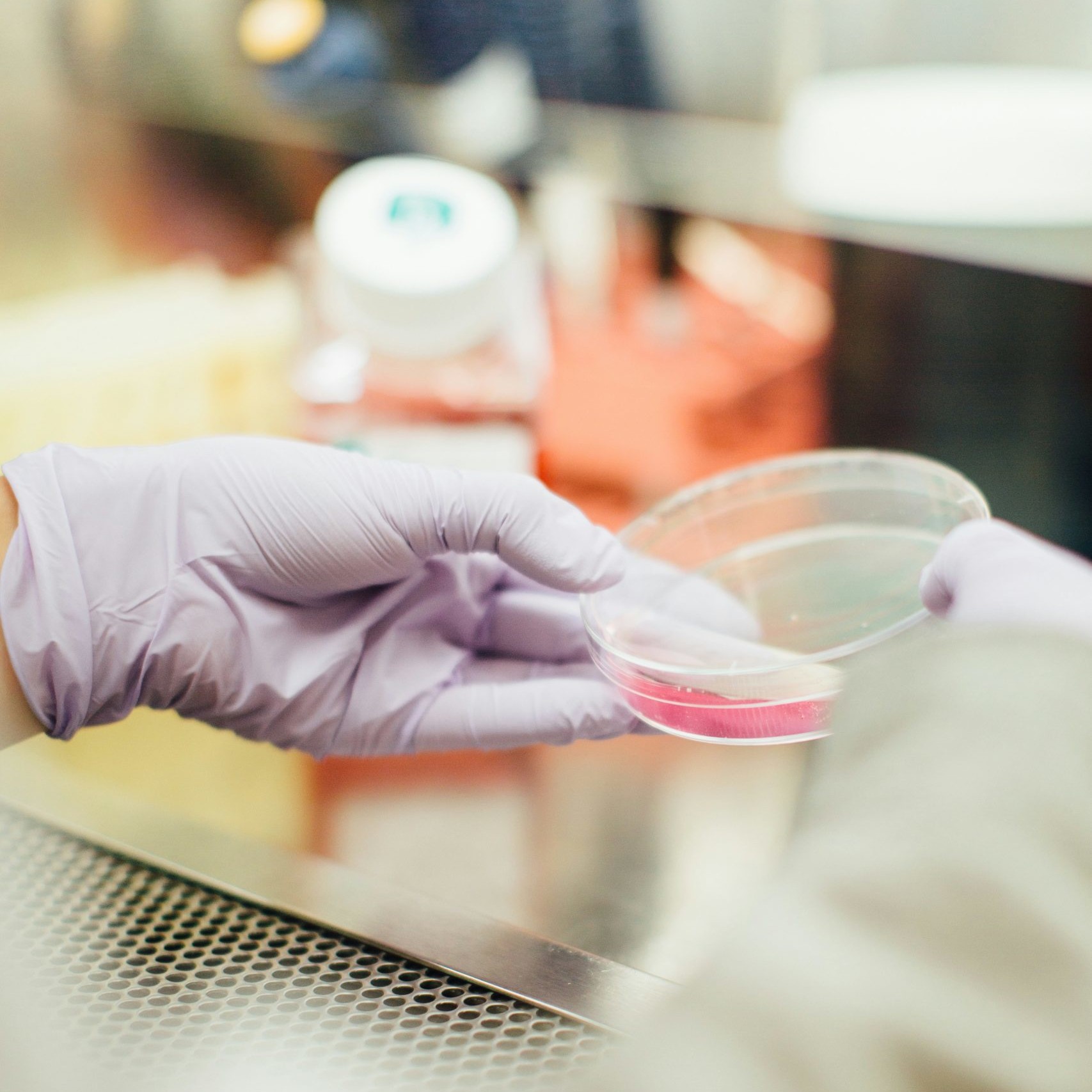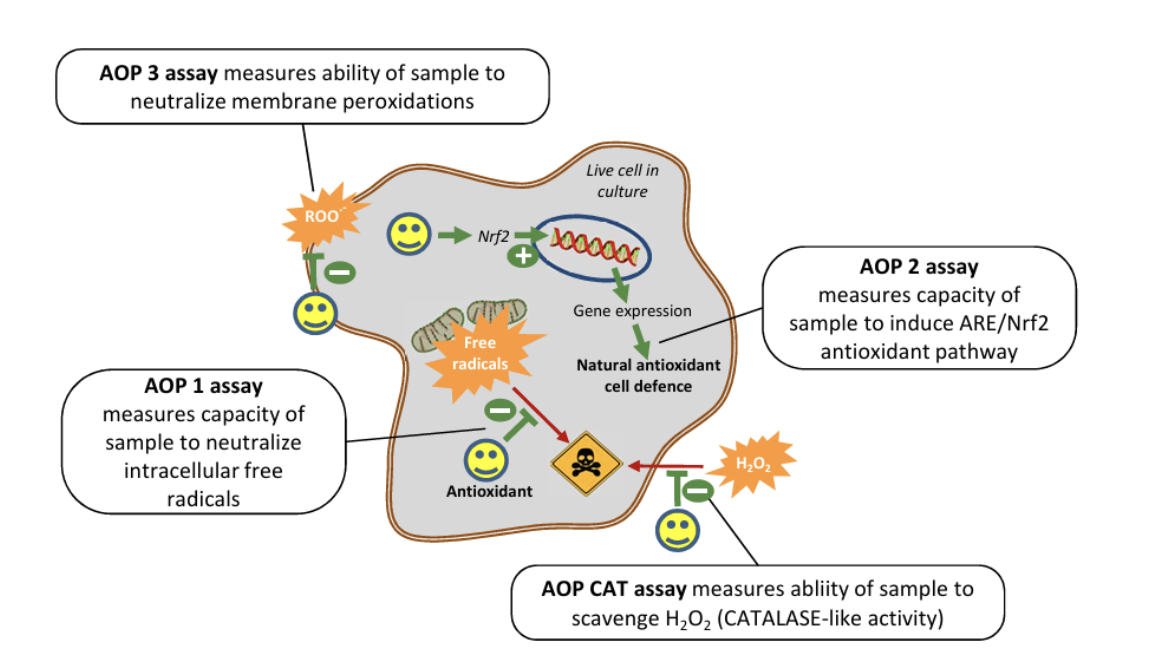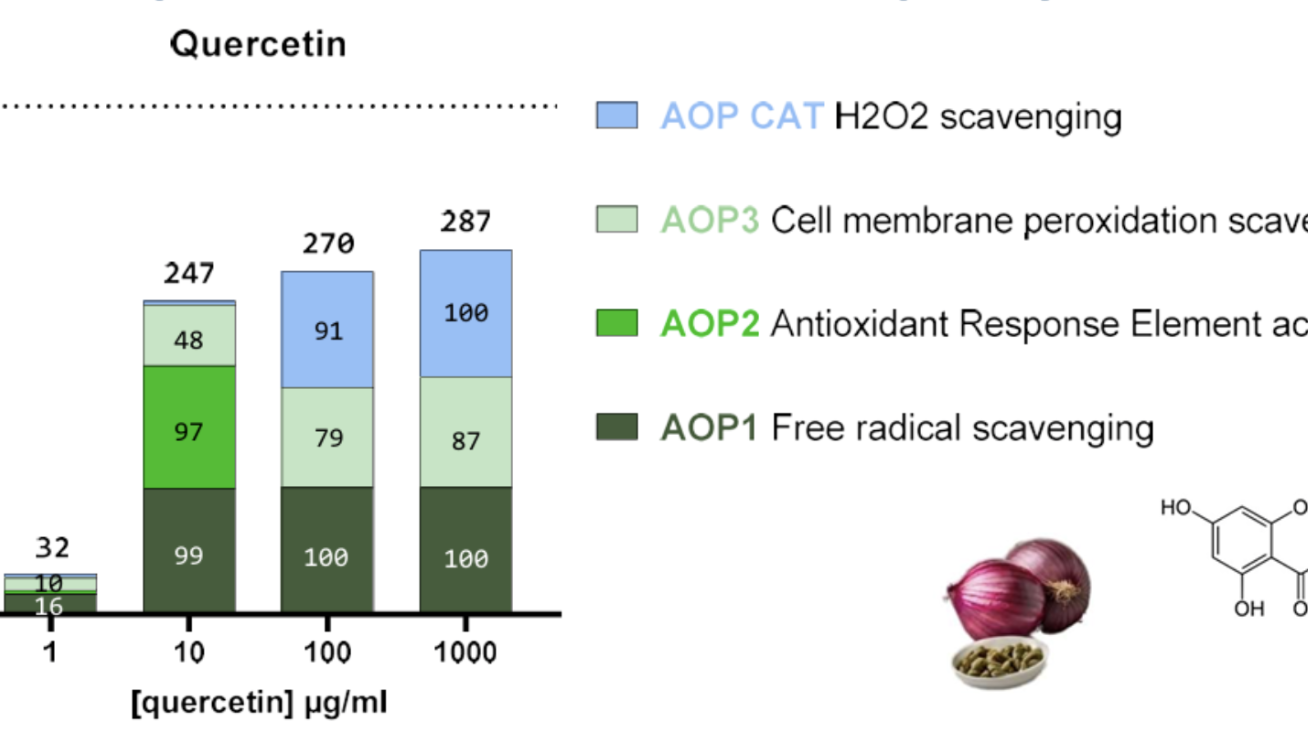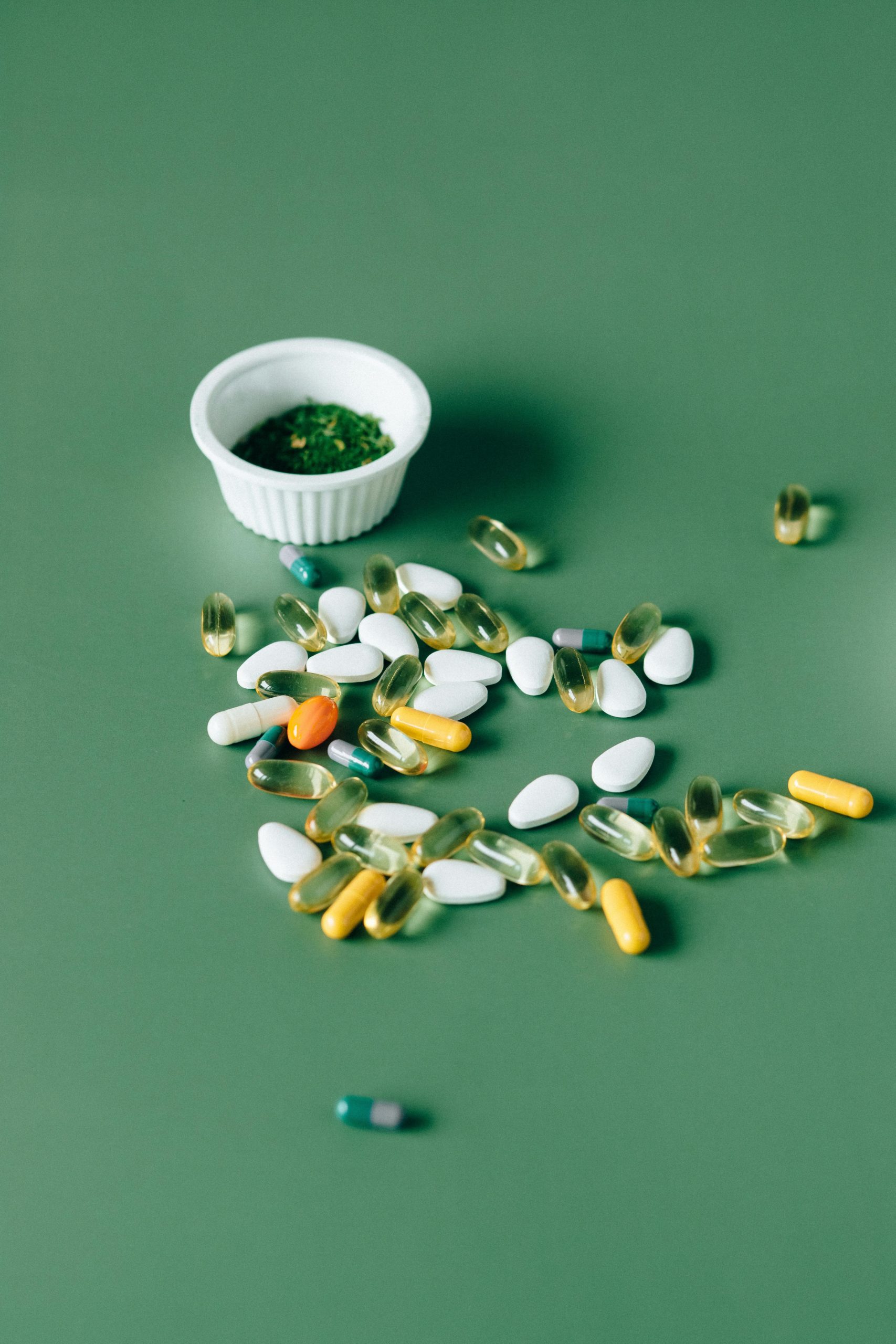Our expertise in cell testing
Our efficiency studies carried out on cellular models provide evidence-based data. They are quick, less expensive, and more ethical than animal-based studies.

Antioxidant efficacy assays
We propose various cellular tests to measure the antioxidant activity and the effective concentrations by targeting the main mechanisms of action.
Targeted claims
Antioxidant effect Cellular free radical quenching
Measurement of the scavenging activity of intracellular ROS (Reactive Oxygen Species)
AOP 1
Targeted claims
Antioxidant effect Anti-aging effect Repairing Detox Cytoprotection
Measurement of the induction activity of the ARE (Antioxidant Response Element) pathway regulated by Keap1/Nrf2.
AOP 2
Targeted claims
Antioxidant effect Cellular lipid peroxidation quenching
Measurement of ROS scavenging activity at the plasma membrane
AOP 3
Targeted claims
Antioxidant effect Cellular ROS scavenging Catalase-like effect
Measurement of catalase-like activity (H2O2 scavenging activity).
AOP CAT

The 4 cellular assays AOP1, AOP2, AOP3 and AOP CAT ensure a complete study of the mechanism of action involved in the antioxidant effect.

The total cellular antioxidant efficacy score is deduced from the combination of the 4 assays.
287
Quercetin 1 mM score after profiling by mechanism of action (4 tests) on human keratinocytes
x7.91
Level of increase in expression of genes associated with the ARE/Nrf2 pathway after sulforaphane 12.5 µM 17h treatment on human keratinocytes
93.9%
Percentage neutralisation of free radicals produced by human HepG2 cells treated with 125 µM resveratrol
Other live cell assays
AOP POL
Measurement of the anti-pollution effect by scavenging ROS generated by urban dust
AOP TRANS
In vitro assessment of intestinal absorption by trans-epithelial transport
AOP UVA
Measuring protection against UVA radiation
We carry out in vitro cell tests for cosmetics (skin and hair), nutrition (human and animal), food supplements and health.
Scientific papers
AOP’s results can be easely published in international peer review journals.

Our certification
AOP has been approved by the French Ministry of National Education, Research, and Higher Education to benefit from the Research Tax Credit (CIR).




